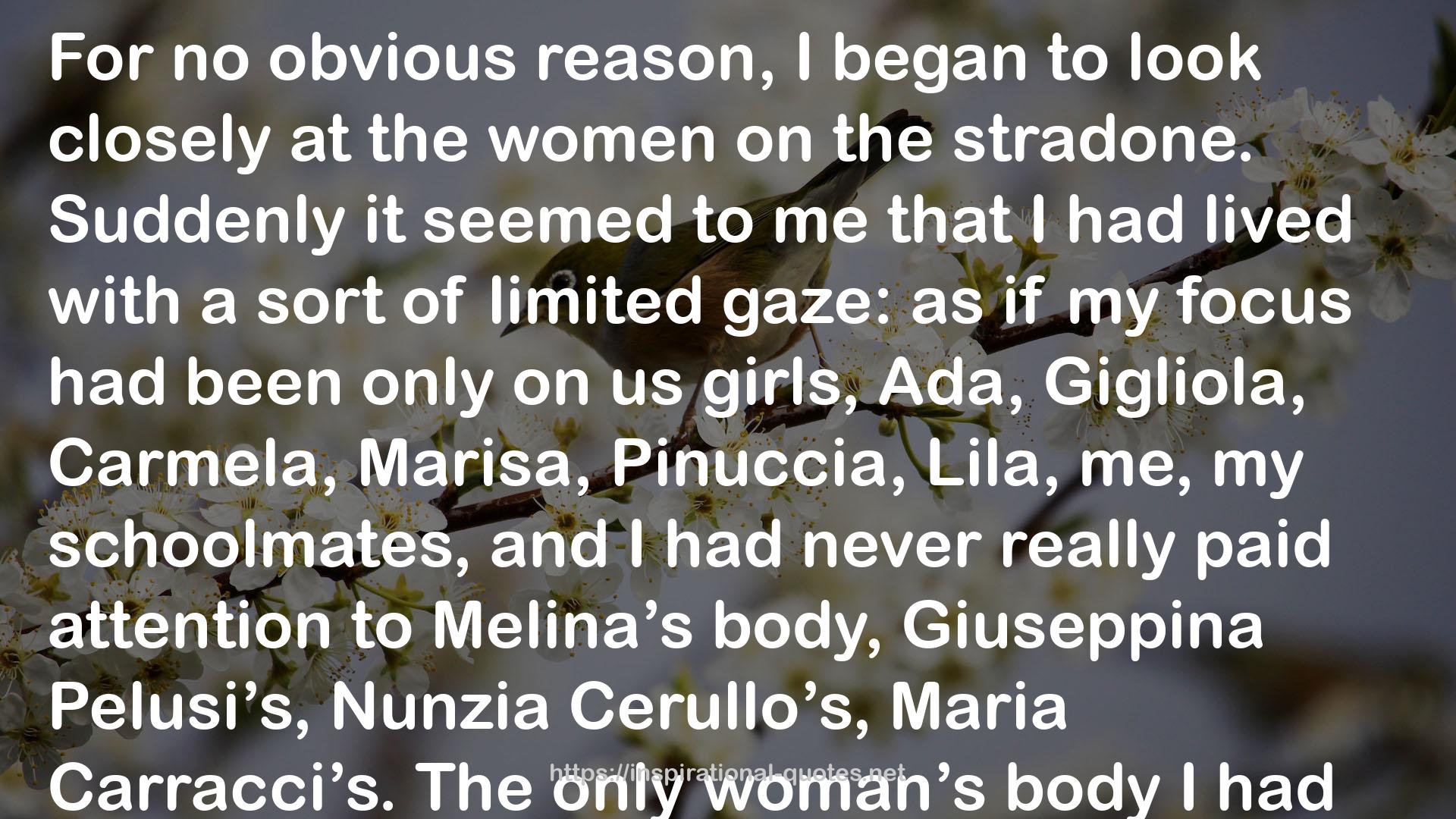" For no obvious reason, I began to look closely at the women on the stradone. Suddenly it seemed to me that I had lived with a sort of limited gaze: as if my focus had been only on us girls, Ada, Gigliola, Carmela, Marisa, Pinuccia, Lila, me, my schoolmates, and I had never really paid attention to Melina’s body, Giuseppina Pelusi’s, Nunzia Cerullo’s, Maria Carracci’s. The only woman’s body I had studied, with ever-increasing apprehension, was the lame body of my mother, and I had felt pressed, threatened by that image, and still feared that it would suddenly impose itself on mine. That day, instead, I saw clearly the mothers of the old neighborhood. They were nervous, they were acquiescent. They were silent, with tight lips and stooping shoulders, or they yelled terrible insults at the children who harassed them. Extremely thin, with hollow eyes and cheeks, or with broad behinds, swollen ankles, heavy chests, they lugged shopping bags and small children who clung to their skirts and wanted to be picked up. And, good God, they were ten, at most twenty years older than me. Yet they appeared to have lost those feminine qualities that were so important to us girls and that we accentuated with clothes, with makeup. They had been consumed by the bodies of husbands, fathers, brothers, whom they ultimately came to resemble, because of their labors or the arrival of old age, of illness. When did that transformation begin? With housework? With pregnancies? With beatings? Would Lila be misshapen like Nunzia? Would Fernando leap from her delicate face, would her elegant walk become Rino’s, legs wide, arms pushed out by his chest? And would my body, too, one day be ruined by the emergence of not only my mother’s body but my father’s? And would all that I was learning at school dissolve, would the neighborhood prevail again, the cadences, the manners, everything be confounded in a black mire, Anaximander and my father, Folgóre and Don Achille, valences and the ponds, aorists, Hesiod, and the insolent vulgar language of the Solaras, as, over the millenniums, had happened to the chaotic, debased city itself? I "
― Elena Ferrante , The Story of a New Name (The Neapolitan Novels #2)
